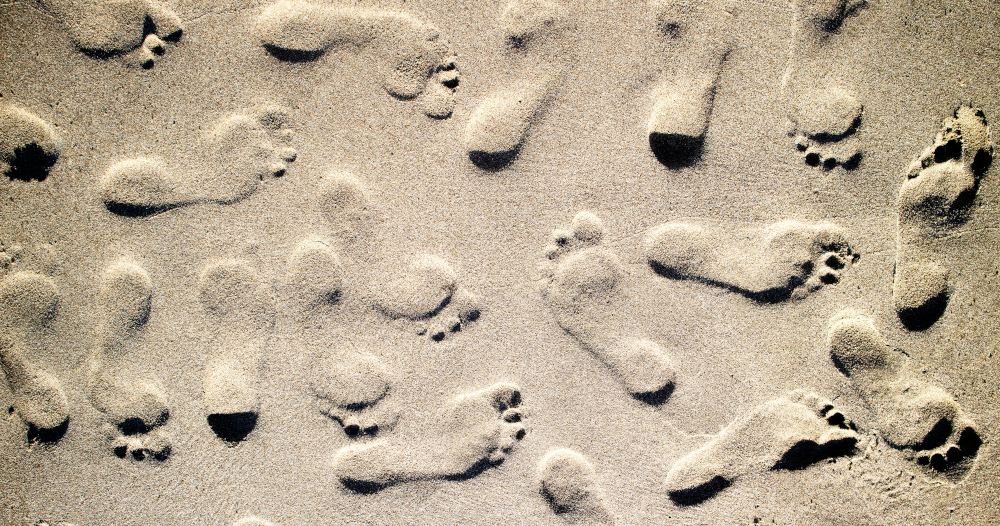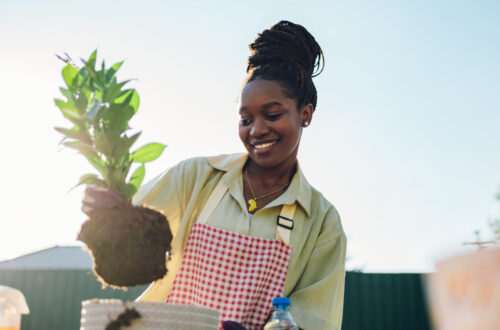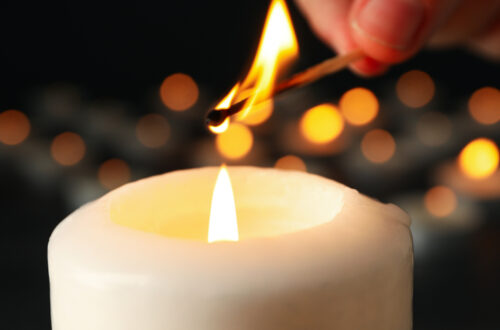
What We’re Really Leaving Behind Online
There’s a photo somewhere on an old phone, cracked screen, SIM long gone, of a birthday cake lit by candlelight during loadshedding. It was never posted, never liked. Just a flickering moment trapped in pixels, buried beneath a gallery of screenshots and forgotten memes. In a world obsessed with the visible, that forgotten image might be one of the most honest things we leave behind. We talk about digital footprints like they’re permanent. But maybe it’s time to talk about digital heirlooms, the soft, human scraps of ourselves left behind in ones and zeroes.
Scroll far enough through anyone’s timeline and you’ll see more than selfies and celebrations. You’ll see gaps, a year with no posts, a silence after a storm. A tagged photo of a person you barely remember, still smiling in a moment that meant something once. The truth hides in the absences. In South Africa, where every MB is counted and not every moment can be uploaded, the gaps tell their own story.
A video of a baby’s first steps, filmed on night data. A dusty voice note from a father overseas. A blurry group selfie at a protest. These aren’t just pieces of content. They’re digital DNA, fragile proof of who we were, what we saw, how we moved through time. We don’t disappear online. We drift. Our profiles sit there like digital tombstones, the photos fading into algorithmic silence. But the internet remembers in strange ways. An old post resurfaces on someone’s memory feed. A voice note gets forwarded to a new number. A YouTube comment from years ago reappears under a trending video.
In the past, heirlooms were tactile, a watch passed down, a note tucked into a Bible. Now, it might be a playlist. A locked phone with one working button. A forgotten TikTok draft. It’s easy to believe the cloud is forever. But accounts get deleted. Passwords die with their holders. Terms of service change. One purge, one shutdown, and a decade’s worth of voice notes could vanish.
And so the question isn’t just about privacy anymore. It’s about ownership. Who holds the keys to our ghosts? Who decides what version of us survives online? And what happens when the only remaining photo of a person is on a platform we can no longer log into? Memory, it turns out, has a price tag. For many South Africans, digital memory isn’t limitless, it’s transactional. A decision made between deleting a video or making space for more WhatsApp texts. Between backing up a photo or downloading a job application.
 Still, we archive. With flash drives, SD cards, screenshots, forwarded emails. We find ways to preserve ourselves, not for the followers, but for the families. For the future. The old legacy was land, name, heirloom. The new legacy might be your meme folder. Your DMs. Your burner Twitter account. A folder called “Mama’s Songs” saved on a cousin’s laptop. We’ve turned our lives into fragments, quick bursts of humour, confessions, edits, and reels. But stitched together, they form something profound. A mosaic of self. A digital museum of what we cared about, what made us laugh, what broke our hearts.
Still, we archive. With flash drives, SD cards, screenshots, forwarded emails. We find ways to preserve ourselves, not for the followers, but for the families. For the future. The old legacy was land, name, heirloom. The new legacy might be your meme folder. Your DMs. Your burner Twitter account. A folder called “Mama’s Songs” saved on a cousin’s laptop. We’ve turned our lives into fragments, quick bursts of humour, confessions, edits, and reels. But stitched together, they form something profound. A mosaic of self. A digital museum of what we cared about, what made us laugh, what broke our hearts.
Have you ever visited the Instagram of someone who’s passed? The comment section becomes a kind of altar. “Still missing you.” “Wish you could see this.” “Happy birthday, wherever you are.” The feed stops updating, but the grief doesn’t. People gather there, not with candles, but with emojis. Not with prayers, but with likes. It’s beautiful. It’s haunting. It’s modern mourning. But there’s no protocol for it. No inheritance plan for our online selves. No ritual to back up the soul.
Every post is a risk. A shout into the void. A hope that someone, someday, will look back and see you. Remember the way you laughed. The things you believed in. The joke you made at 2am that no one else got. Maybe that’s the real bet we place every time we hit upload. That what we leave behind might matter. That we weren’t just scrolling through life. That we left marks, not footprints, but echoes. A reel of your grandmother dancing to amapiano. A voice note from your brother, saying he’ll be late. A blurry video of a road trip that ended in tears. A comment thread that turned into a friendship. A playlist called “things that made me feel okay.”
In a world that forgets so quickly, maybe the kindest thing we can do is remember each other, on purpose. Save the video. Archive the chat. Keep the voice. Share the playlist. Make it last.
Because even in the quietest corners of the internet, we are still writing our stories.
And some stories deserve to be found.




